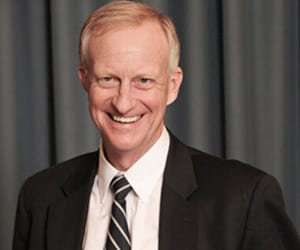DC closes in on state-run sports betting

Washington, D.C. is a step closer to launching regulated sports betting via the state lottery after lawmakers voted to progress a bill to a second reading, and rejected an amendment to open the market to private operators.
The Council of the District of Columbia voted 10-2 in favour of putting forward the Sports Wagering Lottery Amendment Act for a decisive final reading on December 18. A secondary amendment put forward by council member Charles Allen to remove RFK Stadium from the list of five sports venues lined up to have sportsbooks on-site was accepted by a 7-5 majority.
However, council member Robert White’s primary amendment to allow five operator licences to be awarded – including one for a joint venture that would be majority-owned by a local business, known in the state as a Certified Business Enterprise (CBE) – was rejected by the same margin. White’s amendment also called for at least 35% of net profits from sports wagering to be ploughed back into CBEs.
Council member Jack Evans (pictured), who introduced the act, pointed to financial projections by the district’s chief financial officer, Jeffrey DeWitt, that awarding five licences would reduce the state’s estimated revenue by $57.9m (£45.3m/€51m) over the four-year period from 2019 to 2022.
DeWitt estimated that a multiple-operator approach would yield $34.3m over the period, in comparison with $92.2m through the single-operator approach that would likely see DC Lottery supported by current partner Intralot, which has a contract that runs until March 2020.
Evans’ view that it would also be more challenging to evolve from a single- to multi-operator model in the future, rather than vice-versa, also appeared to receive the support of several council members.
“With this bill, we'll give the single app a try and we'll pivot to the multiple app if we have to,” Evans said. “What we can't do is start off with multiple apps and pivot back to the single app.”
Evans acknowledged that White had put forward a “fine” amendment and stressed to his colleagues that the issues that had been raised by White would be revisited at the second hearing, “when we have more information and we know where sentiments lie”.
It also emerged during the reading that council member Kenyan McDuffie, the only absentee, will present a separate amendment that will “address CBE participation” in sports wagering in two weeks’ time.
However, White questioned the state’s financial projections, adding that an independent study had found that “significantly more” revenue would be generated by licensing multiple operators.
“The licences won't be awarded in perpetuity and they will always have a backstop,” White said.
“Private market competition is going to get us further […] but without this amendment, I believe Maryland and Virginia will jump ahead of us with more robust, mature and participatory markets, and we're going to lose the time advantage.”
Back in September, Evans acknowledged that the state “should act before neighbouring jurisdictions” by joining the cluster of nearby states, such as Delaware, New Jersey and West Virginia, which already offer sports betting.
However, Allen’s amendment to strike RFK Stadium from the list of sports venues to offer a sportsbook did win sufficient support at the reading.
Allen described RFK Stadium, which is no longer home to any major sports team in the state, as a “rusting, empty shell”.
He added that, with youth soccer pitches and a go-cart track on site, it is “not an appropriate place” to offer bricks-and-mortar sports betting.
The removal of RFK Stadium leaves four other sports venues on the list for on-site sportsbooks: Capital One Arena, FedEx Field, Audi Field and Nationals Park. Between 40 and 60 other premises that currently offer lottery products – between 10% and 15% of the current total – are expected to stump up the $5,000 fee required to offer sports betting, Evans added.
Last week, Evans’ suggestion of adding what he described as a “royalty fee” of 0.25% of revenue to appease the major sports leagues was rejected by his fellow council members before the bill was ratified to proceed to the initial hearing.
